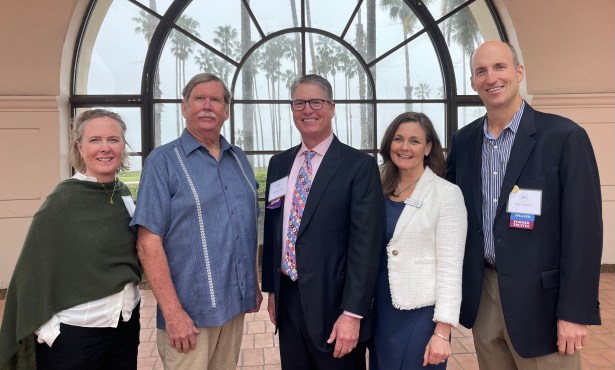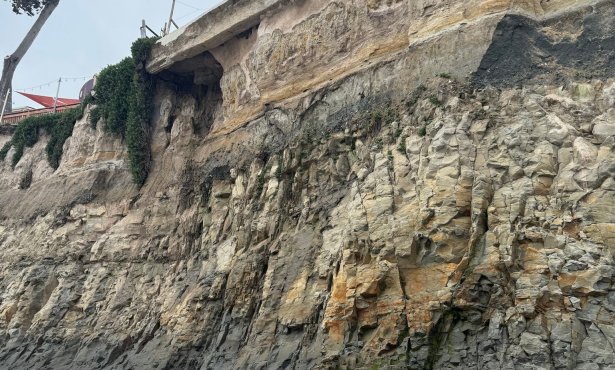The Red and the Black
Tuesdays at 8
At the Lobero Theatre, Tuesday, June 27.
Reviewed by Gerald Carpenter
Notwithstanding the admonition of the Labor Prime Minister (Ray
McAnally) in A Very British Coup that “A man who’s tired
of Mozart is tired of life,” I must confess to entering this
Tuesdays at 8 concert feeling as if I might just have heard enough
of Wolfgang Amadeus in this year of the 250th anniversary of his
birth. This has been especially true since, as Jimmy Durante used
to say, “Everybody wants to get into the act!”
Yet Kathleen Winkler and Warren Jones soon set me straight on
the foolishness of my attitude with their sublime performance of
Mozart’s Violin Sonata in B-flat Major, K. 454. Winkler
has become more celestial with every season. If she and Jones had
come onstage and played just the andante, the evening
could have ended with no one feeling cheated.
Jean Françaix’s Mozart New-Look for Double Bass and Double
Woodwind Quintet, with the magisterial Nico Abondolo in the
featured role, was a charming curio from late in the composer’s
career. In form, it was a highly idiosyncratic arrangement of “Deh
vieni alla finestra,” from Don Giovanni, with maybe a
little of Bizet’s Carmen tucked in around the edges — all
in less than three minutes.
Next, instead of Daron Hagen’s Jot!, clarinetist Richie
Hawley and pianist Jonathan Feldman gave us Debussy’s sweet,
haunting Première rapsodie, and I very much doubt if
anyone present objected to the switch. Hawley has an
extraordinarily smooth and silken tone.
After the intermission, the world was left to darkness and to
Dmitri Shostakovich. First we heard violinist Jeff Thayer and
pianist Anne Epperson play selected preludes from the
Twenty-four Preludes, Opus 34, composed for piano, but
brilliantly arranged, with the composer’s enthusiastic blessing,
for violin and piano by Dmitry Tsyganov. The Preludes are
not at all grim, and reveal Shostakovich’s highly developed sense
of irony and playfulness. Thayer and Epperson sparkled.
Then Winkler, Jones, and cellist Alan Stepansky played the
Piano Trio in E Minor, Opus 67. This was a shattering
performance of a shattering work, and I was moved, as was everyone
else in the hall. While he was alive, anti-Stalin, even
anti-Soviet, messages were perpetually being discovered in
Shostakovich’s music. Since his death in 1975, many have found that
this Trio is a memorial to the Jewish victims of the
Nazis. But in 1977, Peter Eliot Stone wrote of the fourth
movement’s supposed historical content, “a programmatic connection
… must remain purely conjectural for lack of evidence.”
I think we should just leave it at that.



